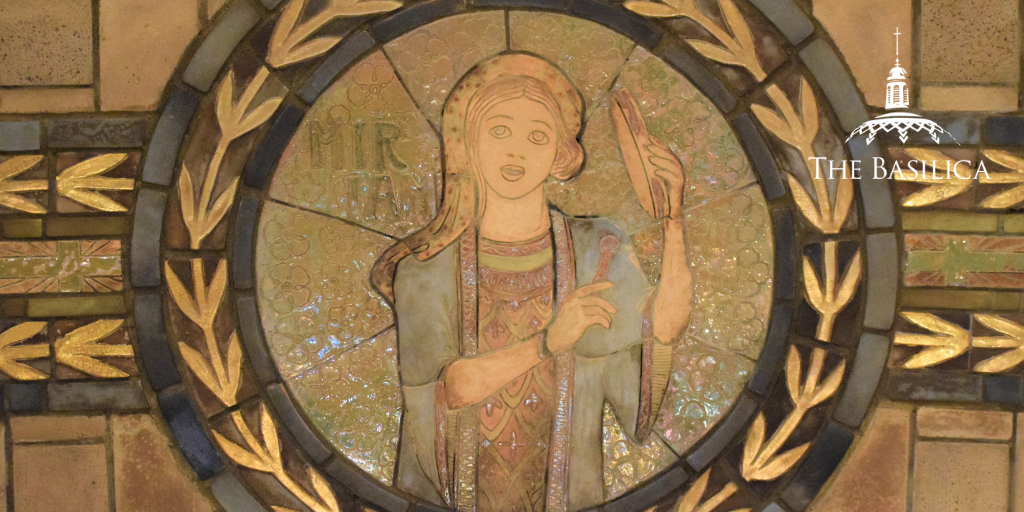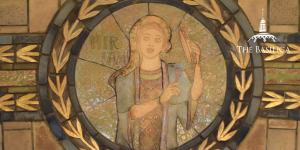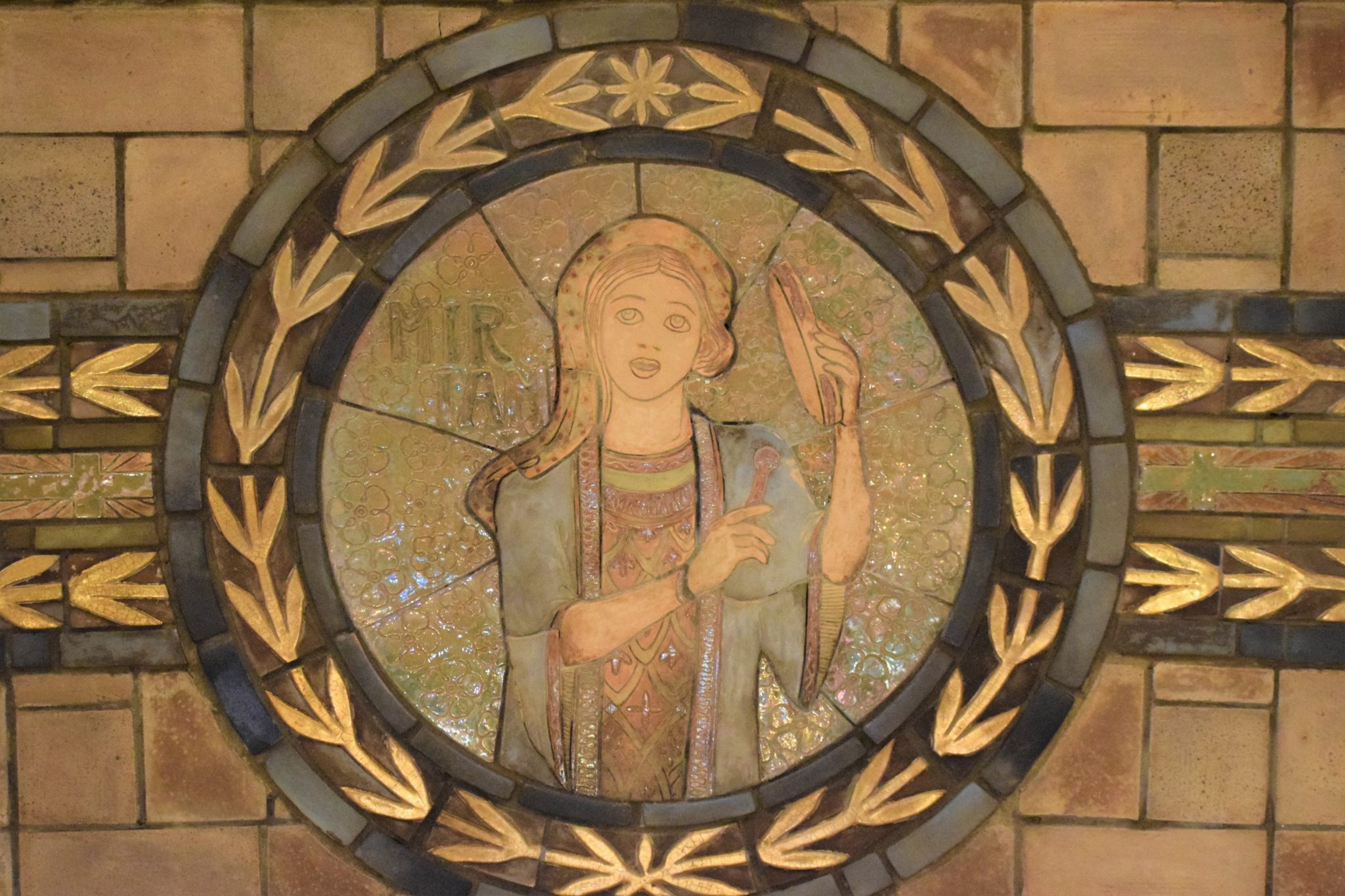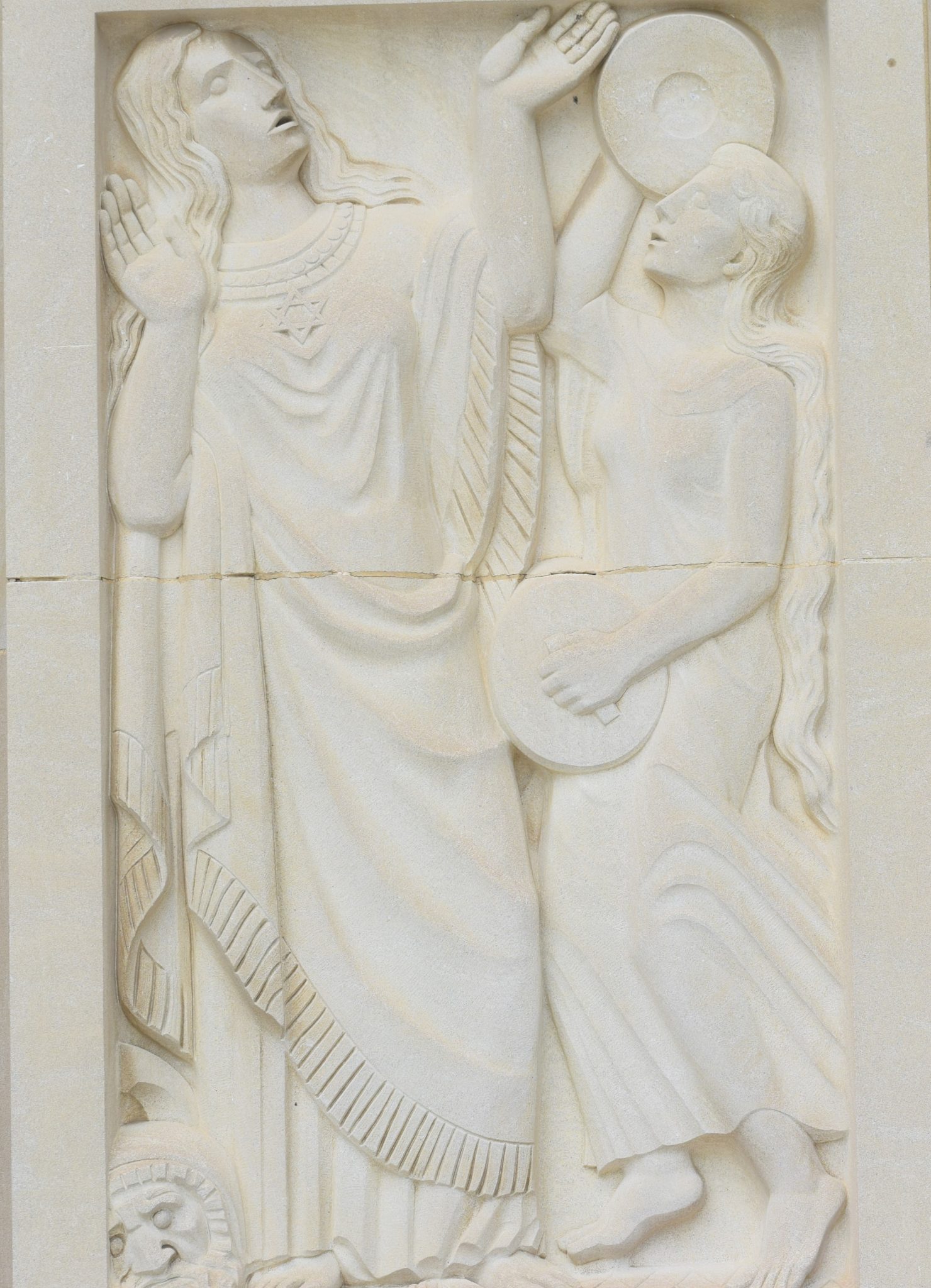
One of the few prophetesses in the Bible, Miriam is primarily recognized for the role she played in saving the life of her brother, Moses. Throughout her story, God’s sovereignty over human events is a recurrent theme; we see the immense good that results from trusting in His sovereignty, as well as the devastating consequences of doubting it. Miriam’s story serves as an example of how we should never lose faith in God’s plan for our lives, and how we should give thanks to Him at all times.
Miriam Saves Moses
The first time Miriam appears in the Bible is in Exodus 2. During this time, the Israelites were living as exiles in Egypt and a new pharaoh had recently risen to power. Fearful of the Israelites’ growing population, he instructed the Egyptians to throw any Hebrew boy that was born into the Nile River.
After his decree, a Levite man named Amram and his wife Jochebed had a son. Rather than risk the boy’s death, the couple tried to hide him for as long as they could. But as he started to grow, it became too difficult. Though Miriam is not mentioned by name, Exodus 2:3-4 explains her role:
“But when she [Jochebed] could no longer hide him, she took a papyrus basket, daubed it with bitumen and pitch, and putting the child in it, placed it among the reeds on the bank of the Nile. His sister stationed herself at a distance to find out what would happen to him.”
After she witnessed Pharaoh’s daughter pull the child out of the river, Miriam offered her mother as a nursemaid – without revealing the fact that either of them were related to him. Through Miriam’s quick thinking, Jochebed was able to be involved in her son’s life while he grew up with the privileges of being the adopted son of Pharaoh’s daughter. Neither she, nor her mother realized the significance that their actions would have on their nation by saving Moses’ life.
Miriam’s Praise for God
The next time Miriam is mentioned in the Bible, several years have passed, and Moses has been chosen by God to lead the Israelites out of Egypt into the promised land. After God parted the seas so they could escape Pharoah’s men, Miriam encouraged the other Israelite women to join her in giving thanksgiving and praise to God for His deliverance – through song. Exodus 15:20-21 tells us:
Then the prophet Miriam, Aaron’s sister, took a tambourine in her hand, while all the women went out after her with tambourines, dancing; and she responded to them:
Sing to the Lord, for he is gloriously triumphant;
horse and chariot he has cast into the sea.
In this passage, Miriam is also referred to as a prophet, a title which recognizes her role in speaking to and shepherding the Israelite people through the wilderness.
Miriam’s Jealousy and God’s Judgment
As the Israelites continued through the wilderness, they often grew impatient and frustrated with their leaders and with God. Jealous of the fact that Moses had been put in charge over all the Israelite people, Miriam and Aaron spoke out against him. They questioned his leadership, claiming that God had also used the two of them to speak to the Israelite people. God heard their complaints, as Numbers 12:5-9 relates:
Then the Lord came down in a column of cloud, and standing at the entrance of the tent, called, “Aaron and Miriam.” When both came forward, the Lord said: Now listen to my words:
If there are prophets among you,
in visions I reveal myself to them,
in dreams I speak to them;
Not so with my servant Moses!
Throughout my house he is worthy of trust:
face to face I speak to him,
plainly and not in riddles.
The likeness of the Lord he beholds.
Why, then, do you not fear to speak against my servant Moses?And so the Lord’s wrath flared against them, and he departed.
Because she did not trust in God, Miriam was struck with leprosy. When Moses asked God to remove the disease from her body, God said she would be healed in seven days. Until then, she had to separate herself from the rest of the people and wait outside their encampment. Once she was healed, the Israelites continued on their journey. No other mention is made of Miriam in the Bible until her death in Numbers 20.
What We Can Learn from Miriam’s Story
Miriam’s story demonstrates how God’s hand is in every event of our life, no matter how insignificant or difficult it may seem. It shows how we can have courage regardless of our circumstances, because God has a plan for our lives. Miriam didn’t know what was going to happen when Moses floated downstream, but she had faith that God would watch out for him. As a result, not only was her little brother able to live and be raised by his true mother – he was positioned to eventually lead the Israelites out of Egypt.
Conversely, Miriam’s attitude in the wilderness shows us the downfalls of doubting God’s plans. When we fail to rely on God and trust in His perfect timing, there are consequences. Sometimes, God simply calls us to watch and wait as He sets His plans in motion. Even when we don’t fully understand or appreciate our role in God’s plan, we’re called to trust in Him.
Not only does Miriam’s story encourage us to continually trust in God, but it also shows us how we should respond to God’s work in our lives. Just as Miriam led the Israelite women in praise, worshipping God for His deliverance after He parted the Red Sea, we are also called to offer praise and thanksgiving to Him. Unlike Miriam, however, our gratitude to God should not be contingent upon how pleasant our circumstances are; rather, we are called to praise God and thank Him through the trials and the triumphs alike.



